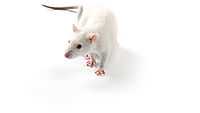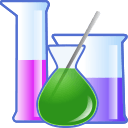
The image shows an interstate highway in the United States of America. Credit: Chuck Intrieri.
Terminology is a keynote lecture for the course on the elements of terminology.
You are free to take this quiz based on the lecture/article terminology at any time.
Once you’ve read and studied the lecture and the links contained within and listed under See also, you should have adequate background to achieve 100 %.
As a "learning by doing" resource, this quiz helps you to assess your knowledge and understanding of the information, and it is a quiz you may take over and over as a learning resource to improve your knowledge, understanding, test-taking skills, and your score.
A suggestion is to have the lecture available in a separate window.
To master the information and use only your memory while taking the quiz, try rewriting the information from more familiar points of view, or be creative with association.
Enjoy learning by doing!
Quiz
Hypothesis:
- Terminology is used to describe dangerous entities like a dominant group.

This is an image of a Lewis rat. Credit: Charles River Laboratories.
The findings demonstrate a statistically systematic change from the status quo or the control group.
“In the design of experiments, treatments [or special properties or characteristics] are applied to [or observed in] experimental units in the treatment group(s).[1] In comparative experiments, members of the complementary group, the control group, receive either no treatment or a standard treatment.[2]"[3]
Def. a “short and/or incomplete realization of a certain method or idea to demonstrate its feasibility"[4] is called a proof of concept.
Def. evidence that demonstrates that a concept is possible is called proof of concept.
The proof-of-concept structure consists of
- background,
- procedures,
- findings, and
- interpretation.[5]
See also
References
- ↑ Klaus Hinkelmann, Oscar Kempthorne (2008). Design and Analysis of Experiments, Volume I: Introduction to Experimental Design (2nd ed.). Wiley. ISBN 978-0-471-72756-9. http://books.google.com/?id=T3wWj2kVYZgC&printsec=frontcover.
- ↑ R. A. Bailey (2008). Design of comparative experiments. Cambridge University Press. ISBN 978-0-521-68357-9. http://www.cambridge.org/uk/catalogue/catalogue.asp?isbn=9780521683579.
- ↑ "Treatment and control groups, In: Wikipedia". San Francisco, California: Wikimedia Foundation, Inc. May 18, 2012. Retrieved 2012-05-31.
- ↑ "proof of concept, In: Wiktionary". San Francisco, California: Wikimedia Foundation, Inc. November 10, 2012. Retrieved 2013-01-13.
- ↑ Ginger Lehrman and Ian B Hogue, Sarah Palmer, Cheryl Jennings, Celsa A Spina, Ann Wiegand, Alan L Landay, Robert W Coombs, Douglas D Richman, John W Mellors, John M Coffin, Ronald J Bosch, David M Margolis (August 13, 2005). "Depletion of latent HIV-1 infection in vivo: a proof-of-concept study". Lancet 366 (9485): 549-55. doi:10.1016/S0140-6736(05)67098-5. http://www.ncbi.nlm.nih.gov/pmc/articles/PMC1894952/. Retrieved 2012-05-09.
Further reading
- Uwe Muegge (2007). "Disciplining words: What you always wanted to know about terminology management". Tcworld (tekom) (3): 17–19. http://www.tekom.de/upload/alg/tcworld_307.pdf.
- Sonneveld, H, Loenning, K: (1994): Introducing terminology, in Terminology, p. 1-6
- Wright, S.E.; Budin, G.: (1997): Handbook of Terminology Management, Volume 1, Basic Aspects of Terminology Management, Amsterdam, Philadelphia, John Benjamins 370 pp.
External links
| Anthropology resources |
|---|
| | Activities | | | | Articles | | | | Categories |
Agriculture ·
Anthropology ·
Archaeology ·
Art ·
Arts ·
Biological Anthropology ·
Culture ·
Dominant group ·
Education ·
Evolutionary anthropology ·
Evolutionary psychology ·
Genetics ·
History ·
Humanities ·
Language ·
Linguistics ·
Literature ·
Medicine ·
Mythology ·
Philosophy ·
Psychology ·
Religious studies ·
Semantics ·
Social anthropology ·
Social psychology
| | | Courses | | | | Fields | | | | Glossaries | | | | Lectures | | | | Lessons | | | | Lists |
| | | Original research | | | | Portals |
History ·
Social sciences
| | | Problem sets | | | | Projects | | | | Proposals | | | | Quizzes | | | | Schools |
Agriculture ·
Alternative medicine ·
Anthropology ·
Archeology ·
Classics ·
Dentistry ·
Gastronomy ·
History ·
Life ·
Medicine ·
Pharmacy ·
Veterinary medicine
| | | Topics | |
|
| Charge ontology |
|---|
| | Lectures | | | | Articles | | | | Courses | | | | Activities | | | | Lessons |
| | | Problem sets | | | | Quizzes | | | | Lists | | | | Projects | | | | Topics |
Astronomy ·
Astrophysics ·
Geophysics ·
Nuclear physics ·
Particle physics ·
Planetary science
|
|
| Dominant group |
|---|
| | Activities | | | | Courses | | | | Definitions & Meaning | | | | Diffusion |
Aristocracies ·
Authors ·
Empires ·
Hierarchies ·
Killers ·
Journals ·
Languages ·
Slavery ·
Wealth
| | | Fields | | | | Income opportunities | | | | Lectures | | | | Lessons | | | | NEH proposal sections | | | | NSF proposal sections | | | | Quizzes | | | | Resources | |
|
| Humanities resources |
|---|
| | Activities | | | | Articles | | | | Categories |
Agriculture ·
Anthropology ·
Archaeology ·
Art ·
Arts ·
Culture ·
Dominant group ·
Education ·
Genetics ·
History ·
Humanities ·
Language ·
Linguistics ·
Literature ·
Medicine ·
Philosophy ·
Psychology ·
Religious studies ·
Semantics ·
Social psychology
| | | Courses | | | | Fields | | | | Glossaries | | | | Lectures | | | | Lessons |
| | | Lists |
| | | Original research | | | | Portals |
History ·
Social sciences
| | | Problem sets | | | | Projects | | | | Proposals | | | | Quizzes | | | | Schools |
Agriculture ·
Alternative medicine ·
Anthropology ·
Archeology ·
Classics ·
Dentistry ·
Gastronomy ·
History ·
Life ·
Medicine ·
Pharmacy ·
Veterinary medicine
| | | Topics | |
|
| Linguistics resources |
|---|
| | Lectures | | | | Articles | | | | Courses | | | | Activities | | | | Lessons | | | | Problem sets |
| | | Quizzes | | | | Lists | | | | Projects | | | | Topics |
Computational linguistics ·
Computer programming ·
Foreign Language Learning
| | | Schools |
Computer science ·
Language and literature ·
Linguistics ·
Media Studies
| | | Fields | | | | Proposals | |
|
| Reasoning |
|---|
| | Lectures | | | | Articles | | | | Courses | | | | Topics | | | | Schools |
Biomathematics ·
Computer Science ·
Law ·
Linguistics ·
Mathematics ·
Philosophy ·
Psychology
| | | Activities |
| | | Lessons | | | | Quizzes |
Abstract concept generator/Quiz ·
Affirmation/Quiz ·
Answer/Quiz ·
Argumentation/Quiz ·
Assent/Quiz ·
Belief/Quiz ·
Canons/Quiz ·
Categorical Syllogism/Quiz ·
Certainty/Quiz ·
Comparison/Quiz ·
Computer Logic/Quiz ·
Conclusion/Quiz ·
Correctness/Quiz ·
Credulity/Quiz ·
Criteria/Quiz ·
Deduction/Quiz ·
Demonstration/Quiz ·
Discovery/Quiz ·
Discrimination/Quiz ·
Disillusionment/Quiz ·
Dissent/Quiz ·
Eccentricity/Quiz ·
Elementary logic/Quiz ·
Error/Quiz ·
Evidence/Quiz ·
Evolution/Quiz ·
Experiment/Quiz ·
Fact/Quiz ·
Foolishness/Quiz ·
Formalness/Quiz ·
Gamble/Quiz ·
Hypothesis/Quiz ·
Idea/Quiz ·
Ignorance/Quiz ·
Illusion/Quiz ·
Impossibility/Quiz ·
Improbability/Quiz ·
Incredulity/Quiz ·
Indiscrimination/Quiz ·
Induction/Quiz ·
Inference/Quiz ·
Insanity/Quiz ·
Intellect/Quiz ·
Intuition/Quiz ·
Judgment/Quiz ·
Knowledge/Quiz ·
Logic/Quiz ·
Mathematical proofing & reasoning/Quiz ·
Maxim/Quiz ·
Measurement/Quiz ·
Metalogic/Quiz ·
Metamathematics/Quiz ·
Misjudgment/Quiz ·
Negation/Quiz ·
Normative/Quiz ·
Overestimation/Quiz ·
Philosophical logic/Quiz ·
Philosophy/Quiz ·
Possibility/Quiz ·
Prejudgment/Quiz ·
Premise/Quiz ·
Primary mathematics:Boolean logic/Quiz ·
Principle/Quiz ·
Probability/Quiz ·
Proof/Quiz ·
Proposition/Quiz ·
Propositional logic/Quiz ·
Qualification/Quiz ·
Reasoning/Quiz ·
Sanity/Quiz ·
Semantics/Quiz ·
Solution/Quiz ·
Sophistry/Quiz ·
Theoretical astronomy/Quiz ·
Theoretical radiation astronomy/Quiz ·
Theory/Quiz ·
Theory of original research/Quiz ·
Thought/Quiz ·
Topic/Quiz ·
Truth/Quiz ·
Unbelief/Quiz ·
Uncertainty/Quiz ·
Underestimation/Quiz ·
Validity/Quiz
| | | Original research | | | | Proposal |
| | | History | | | | Projects |
| | | Glossaries | | | | Portals |
Portal:Computer Science ·
Portal:Mathematics
|
|
| Semantics resources |
|---|
| | Lectures | | | | Articles | | | | Courses | | | | Activities | | | | Lessons | | | | Problem sets |
| | | Quizzes | | | | Lists | | | | Projects | | | | Topics |
Computational linguistics ·
Computer programming ·
Foreign Language Learning
| | | Schools |
Computer science ·
Language and literature ·
Linguistics ·
Media Studies
| | | Fields | | | | Proposals | |
|
| Terminology resources |
|---|
| | Activities | | | | Articles | | | | Categories | | | | Courses | | | | History | | | | Lectures | | | | Lessons | | | | Lists | | | | Original research | | | | Projects | | | | Proposal | | | | Quizzes | | | | Schools |
School:Biology ·
School:Computer science ·
School:Language and Literature ·
School:Linguistics ·
School:Media Studies
| | | Texts | | | | Topics |
Topic:Computational linguistics ·
Topic:Computer programming ·
Topic:Foreign Language Learning
|
|
| Universal translator |
|---|
| | Articles | | | | Courses | | | | Definitions & Meaning | | | | Fields | | | | Lectures | | | | Lessons | | | | Projects | | | | Schools |
Computer science ·
Language and Literature ·
Linguistics ·
Media Studies
| | | Topics |
Computational linguistics ·
Computer programming ·
Foreign Language Learning
|
|
 This is a research project at http://en.wikiversity.org
This is a research project at http://en.wikiversity.org
 |
Development status: this resource is experimental in nature. |
 |
Educational level: this is a research resource. |
 |
Resource type: this resource is a quiz. |
 |
Subject classification: this is a terminology resource. |


![]() This is a research project at http://en.wikiversity.org
This is a research project at http://en.wikiversity.org